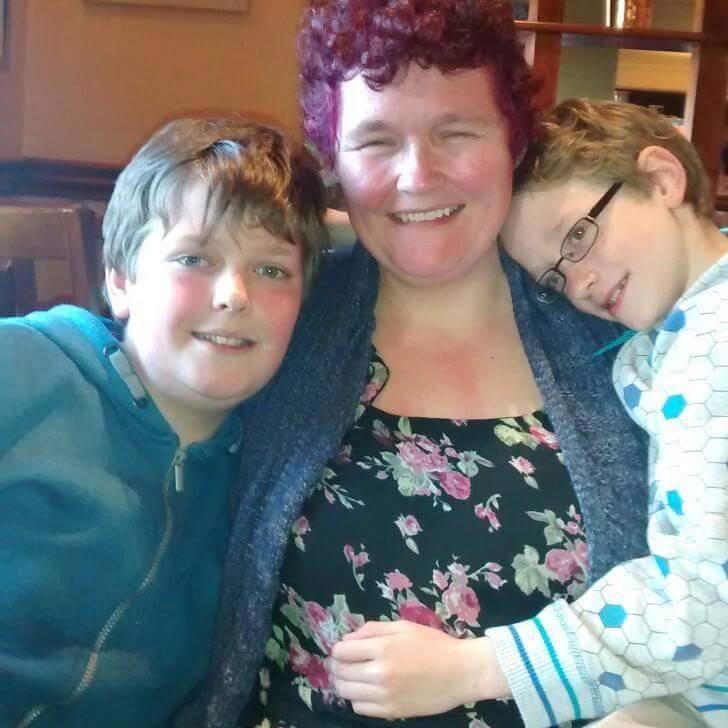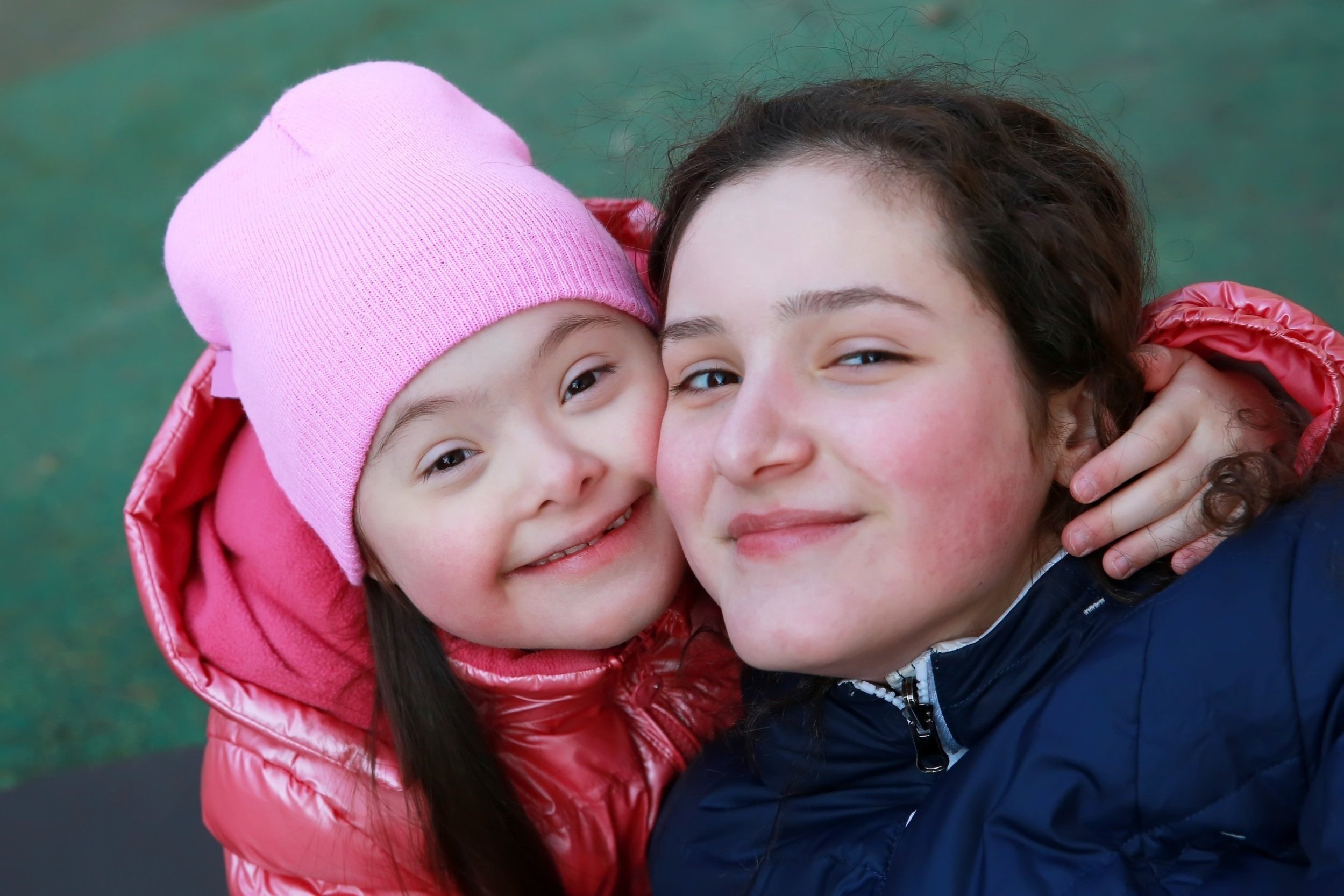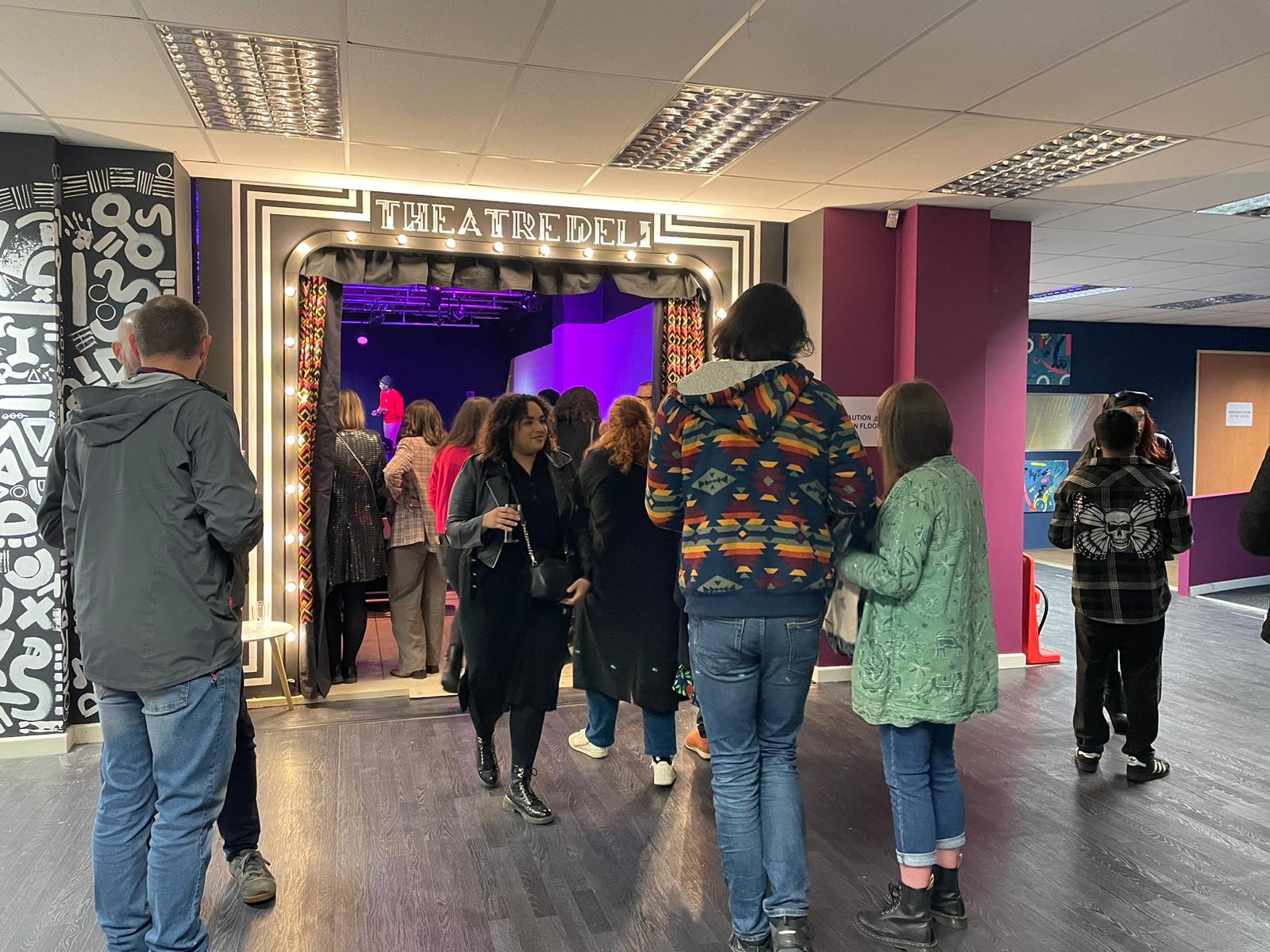Claire Throssell whose two sons were killed by their own father is backing a Women’s Aid campaign to keep children safe from domestic abuse.
Jack, 12 and Paul, nine, were murdered by their father after he trapped them in the attic of the family home, in Penistone, Sheffield, and set it on fire.
Darren Sykes, who also died in the house fire, was awarded unsupervised access access to his children by a family court.
“Judges have to stop this presumption that it’s in the child’s best interest to see both parents. Strangers are making decisions that affect the rest of their lives,” says Claire, 51, an ambassador for Women’s Aid.
After the death of her sons, Claire began working with the domestic abuse charity to implement changes to the family courts and keep “children at the heart of every decision”.
Claire’s children died at the hands of their father after she had suffered years of abuse and finally left the family home. She took her sons and moved in with her mum. In the custody that followed Claire fought for residency orders through the family court. She says: “Their father had the right to see his children. But Jack and Paul didn’t have the right to say they didn’t want to see him.
“What people don’t realise is the time after leaving, which is called post-separation, the abuse ramps up. It’s the most dangerous time because your abuser no longer has control over you.
“Cafcass are supposed to be advocates for children in family court. They’re supposed to keep children at the heart of every decision made. Somewhere in this fight between the separation and the abuse, children in the middle, their voice gets lost. It’s Cafcass’ job to make sure those children are safe.”
Claire believes the courts only perpetuate the power an abuser has over a survivor of domestic abuse. “You believe that a court is a safe place but it is one of the most humiliating and degrading places to be,” she says. “You think you’ve fled the fear and oppression. When you walk into a family court, and the fear and oppression is right there, you go right back to being a piece of dirt underneath their shoes.”
Claire was forced to sit only four seats away from her abuser and had to listen to him hurl insults at her while the judge did nothing to stop him. She told the court and the Children and Family Court Advisory and Support Service (Cafcass) the boys would not be safe if their dad was given contact with them.
After a long battle with the judge and Cafcass, the court ruled that the boys would have five hours of unsupervised contact with their dad. “It took only 15 minutes for him to take away their futures,” says Claire.
On their final visit, the boys’ dad took them to the attic and set fire to the house, in Penistone, Sheffield, trapping them inside. Paul passed away shortly afterwards, in his mum’s arms, after being taken to Barnsley Hospital. Jack spent five days in Manchester Children’s Hospital fighting for his life but during surgery, he went into cardiac arrest after developing sepsis and doctors were unable to save him.
A year later, Claire became an ambassador for Women’s Aid and together they launched a new campaign to protect children in the future. “I remember meeting Women’s Aid for the first time. I walked into a café feeling very down, I’d just been told that I couldn’t challenge the serious case review for the boys, where my boys were referred to as Child A and Child B. Things were looking very bleak indeed.”
After walking into the cafe, two members of staff from Women’s Aid ran over to Claire, held out their hands, and have never let go since. They talked about the recent research Women’s Aid had carried out, which revealed 19 children between 2000 and 2014 had died at the hands of a known perpetrator of domestic abuse. “They said, will you become the front of the Child First campaign? Will you help us go to Parliament and challenge the piece of legislation underneath the Children’s Act to stop the presumption of contact to make family courts safer,” says Claire.
That afternoon, the Child First campaign was born. The petition quickly gained 20,000 signatures in two months and was taken to parliament for the first time within just a year of being launched. “None of this would have been possible without Women’s Aid,” says Claire. “They gave it a platform, they gave it a purpose.
“And that’s what Women’s Aid do, they make a difference. There’s people that watch documentaries or read newspaper articles about their work. If just one bit of it makes them think, oh, that’s happening to me, that’s happening to my child and they do something about it, then that’s a life saved that we don’t know about.
“There’s nothing more powerful than women empowering women. There’s nothing more powerful than a country empowering a country empowering a country because changes get made, differences are made.”
Now, alongside the Child First campaign, Women’s Aid and Claire are launching a new campaign to push for mandatory training for judges on how to handle domestic abuse cases. Claire believes this training should be essential for all judges who are making life-changing decisions in family courts and that judges need to be held accountable for their actions.
“The boys always used to say wherever I was, was home,” says Claire. “But where they were was home for me. I haven’t got a home right now. One day, I will go home. But I want to go knowing that I have left a legacy for Jack and Paul.”
This year marks the 50th anniversary of Women’s Aid. You can find the Child First petition here and the family courts petition here.



